Exhibitions
Noga Yudkovik-Etzioni: Equilibrium
Noga Etzioni Yudkovik engages in sculpture and drawing. Her studio functions as a factory, where she works with woodworking machines, lathes, and various tools, in materials such as oak-tag, cork, and rubber—cheap materials that instill an ascetic feel. In a laborious process, she concocts, takes apart, and reassembles from these diverse materials objects that seem to have been made of wood. Ostensibly heaped at random, these objects are the result of careful planning, during which the artist examines the interrelations between the sculpted parts, and between the sculptures and the space, in a practice that combines sculpture and architecture.The works are distinguished by a perception of interpersonal dialogue as an artistic quality. Domestic kitchens, public institutions, the threshold to the street—all of these function as scenes of action and studio spaces where the works are created. Presence is the main creative material and the foremost value in this artistic genre, which pushes aside art that aims for visibility in favor of art that seeks to be experienced while taking shape.
Body Language
Family activity space
Our body works all the time, even at night, when we sleep: the heart beats and pumps blood to all parts of the body, the lungs fill with air and empty, and there are many other systems in the body that work nonstop so that we feel well. These actions produce heat, which is known as "body heat."
Panels painted in shades of red and blue hang along the wall. They were painted with a special paint sensitive to heat, which disappears in contact with the skin. Try touching the panels and see how your body heat affects the paint.
Storm and Stress: Early 20th Century German Prints
The exhibition focuses primarily on early 20th century prints by German artists, all from the museum's collection. Its title was borrowed from the Sturm und Drang movement - a literary movement in 18th-century Germany, emphasizing expression of the individual's deepest and most intense feelings on the assumption that the human psyche is dominated not by reason but by raw, stormy, and unexpected emotion.
Hard and Soft: Works from the Gottesman Etching Center
In essence, printmaking generates images that are based on transference: transference from one surface to another. In fact, one of the first creative activities with which children experiment is printing, when they dip their hands in paint and leave their imprint on paper. Over the years, the art of printmaking has become more sophisticated, and the prints on view attest to the wealth of possibilities inherent in the field.
Oded Hirsch: Inventing the Wheel
Oded Hirsch's works are based on detailed scripts for absurd situations. He invents challenges and problems that need to be solved, providing a complete scenario for their solution. The solution is usually just as far-fetched as the challenge, and the works leave the viewer wondering about the very necessity of these actions: Why is it necessary to pull out a tractor buried in the ground, lift it upwards, and introduce it into the museum?
In the absence of other answers, the main reason seems to be the action itself. Hirsch’s photographic, video, and sculptural works are always centered on people laboring: carrying, digging, hoisting, and sweating. The challenge is indeed absurd and the solution awkward, but the participants' action is real, and is characterized by manual labor carried out with the aid of obsolete low-tech means.
Nardeen Srouji: My Playground
Nardeen Srouji opens the windows and introduces a storm into the museum. The wind reveals historical layers of the building, inaugurated in 1930 as a girls' school of the Anglican Church, which was open to girls from all religious groups in the city, and its language of instruction was predominantly Arabic. Performing a series of interventions in the space, Srouji digs into the place’s past, uncovering echoes from the British Mandate period in the form of a tower of chairs about to collapse, texts in Arabic, and the sound of footsteps in the stairwell. The colorful past bursts forth through the gray concrete floor, springing up between the cracks that opened in white museum pedestals.
North Window
Wind is a gust of air that can be felt, but not seen. According to the Jewish Sages, King David's lyre hung opposite the north window in his bedroom, and when a north wind blew in, the lyre would play by itself. A north wind can be an air movement coming from the north, and it can also be all the tangible and intangible things that the north represents.
Adrian Paci: Still Voices
Extending over an entire floor, the exhibition is dedicated to a wide survey of video works by world-renowned artist Adrian Paci, starting with his earliest work from 1997 and concluding with two world premieres of his recent works from 2021. Paci is one of the most prominent and influential contemporary artists, who over two decades has been sensitively commenting on current political and social upheavals, while maintaining a unique humanistic voice. His art focuses on the individual, on singular human beings living within a collective, whose voices, facial expressions, and bodily movements are explored in his videos as in portraiture. From a close examination of specific people and unique situations, Paci zooms out to reflect on universal concepts and feelings such as loss and the struggle to overcome it.
Anna Lukashevsky: Types
New Exhibition
With a deep fondness for eccentric men and women, Anna Lukashevsky wanders in the vicinity of her Hadar studio in Haifa, "hunting" types on the street: people who fit into clear ethnic and social characteristics, but something unique in their personality deviates from the "type" and captures her gaze. When she encounters an interesting figure, she makes a quick drawing on the spot and then invites that person to her studio; there, during several sessions, while conversing with the sitter, she paints and extracts a multi-dimensional individual from the ethnic-social category.
Volkan Kızıltunç & August Sander: The Look
New Exhibition
Centered on photographic portraits, the exhibition brings two artists together, separated by a hundred years—Volkan Kızıltunç and August Sander. The subjects of the portraits look directly at the camera, but rather than momentary, one-sided gazes, these are long observations between the photographers and photographed. The gaze is a means of dialogue between two subjects, who acknowledge the other's subjectivity while looking at each other. Where the photographers and their subjects looked at one another, a bond of gaze is now formed between the viewer and the work of art.

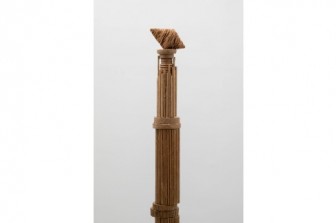
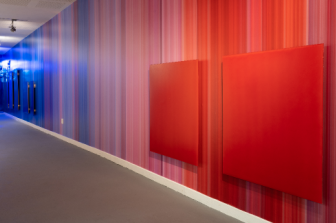
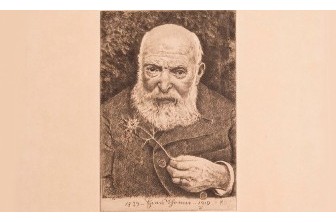
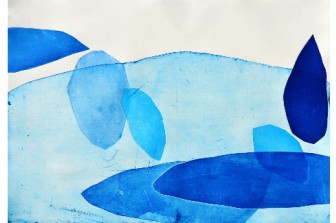
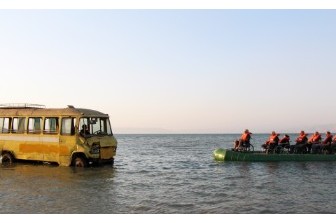
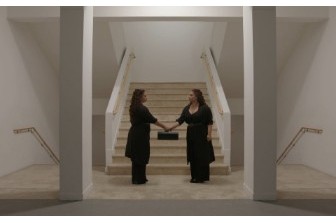
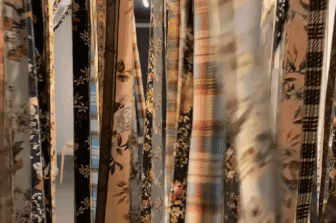
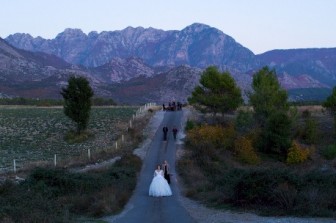
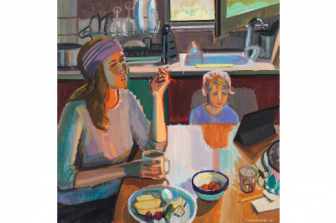
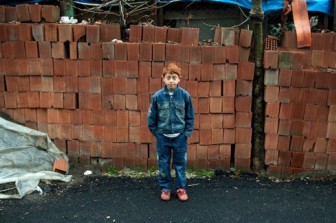
Please contact us and we will contact you as soon as possible